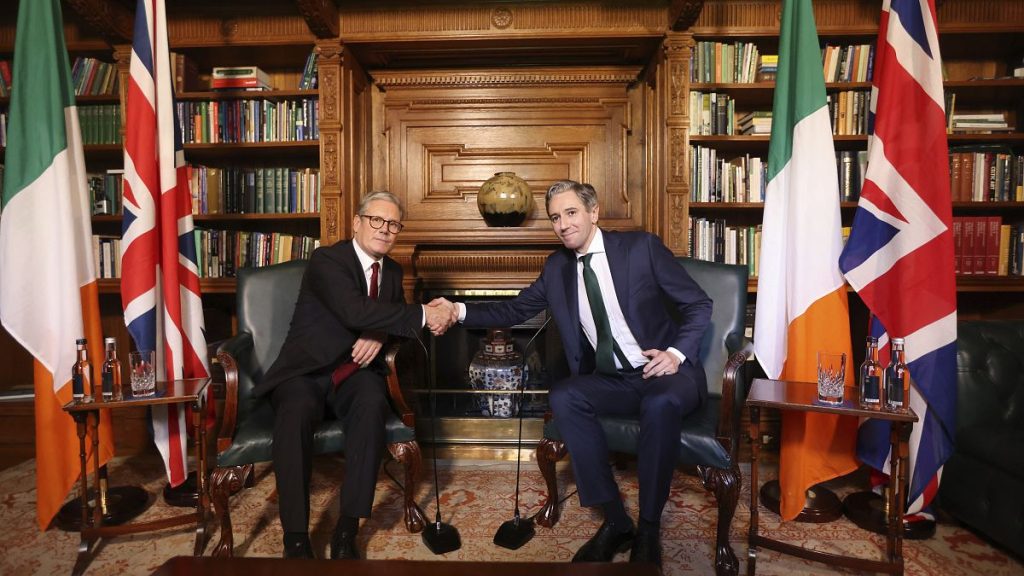The strained relationship between the UK and Ireland, exacerbated by the UK’s decision to leave the European Union, has prompted British Prime Minister Keir Starmer to visit his Irish counterpart Simon Harris in Dublin. This visit marks a reset in relations between the two countries, with Starmer expressing a desire to deepen economic and security ties. Starmer emphasized the importance of the Good Friday agreement, which brought an end to the conflict in Northern Ireland, and indicated a commitment to renewing the UK’s relationship with both Ireland and the EU. While he stated that the UK will not seek to rejoin the EU under his leadership, he aims to renegotiate elements of the post-Brexit trade deal to foster growth and reduce friction in business.
During his visit to Ireland, Starmer reiterated his intention to establish annual summits between the UK and Ireland, beginning with a summit in March to showcase the progress of the relationship reset. Starmer’s outreach efforts also extend to other EU capitals, including Paris and Berlin, with the goal of strengthening ties with the EU as a whole. The British leader emphasized the importance of standing together on international issues such as the conflict in Ukraine. In Dublin, Starmer and Harris participated in a business roundtable to explore how the reset in relations can benefit trade between the two countries, which has an economic value of around €120 billion and supports numerous jobs on both sides of the Irish Sea.
The decision of the UK to leave the EU in 2016 has had far-reaching implications, particularly in relation to the political structures of Northern Ireland. The agreement to keep the Irish border free of customs checks after Brexit was crucial to maintaining peace in the region, and Starmer stressed the importance of upholding the Good Friday agreement in light of these developments. While he ruled out rejoining the EU or its single market and customs union, Starmer expressed a desire for a closer relationship with the EU on matters of security, defence, and trade. Reducing friction in trade between the UK and the EU is seen as a priority to foster economic growth and benefit businesses in both countries.
Starmer’s meeting with Harris in Dublin marked a significant step in resetting British-Irish relations, with both leaders expressing a commitment to placing the relationship on a new path. The visit was the first by a British leader to Ireland in five years and signified a fresh approach to fostering economic and security cooperation between the two countries. By engaging in discussions on how to enhance trade and strengthen economic ties, Starmer and Harris sought to underscore the mutual benefits of a reset in relations. The focus on annual summits and ongoing dialogue indicates a long-term commitment to building a more positive and constructive relationship between the UK and Ireland.
The economic relationship between the UK and Ireland, with trade valued at €120 billion, is a cornerstone of the partnership between the two countries. The business roundtable in Dublin provided an opportunity to explore ways in which a reset in relations could further bolster trade and support job creation on both sides of the Irish Sea. Starmer’s emphasis on reducing friction in trade and enhancing cooperation with the EU aligns with his broader strategy of forging closer ties with key international partners. By prioritizing economic growth, security cooperation, and trade relations, Starmer aims to navigate the complexities of post-Brexit challenges while strengthening the UK’s position on the global stage.


